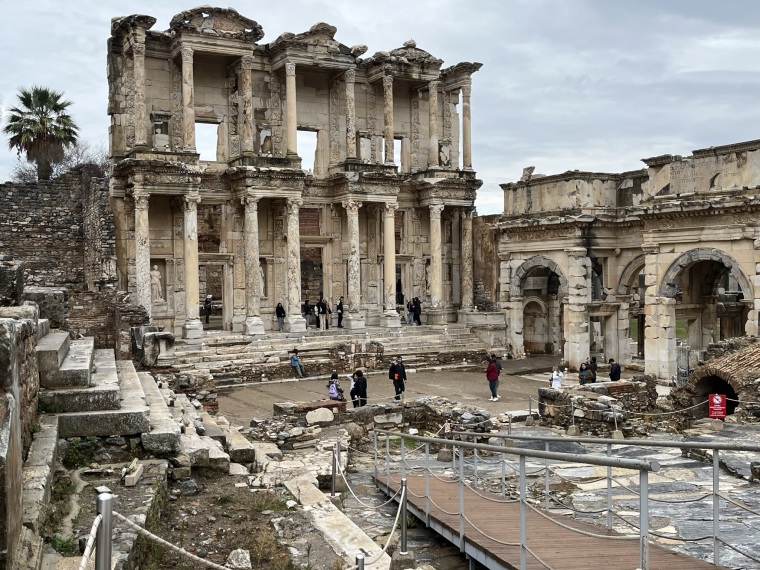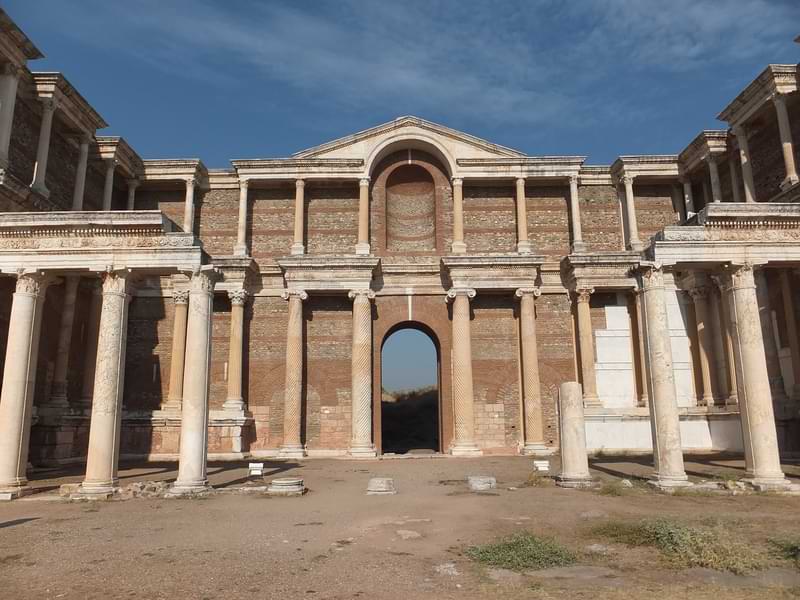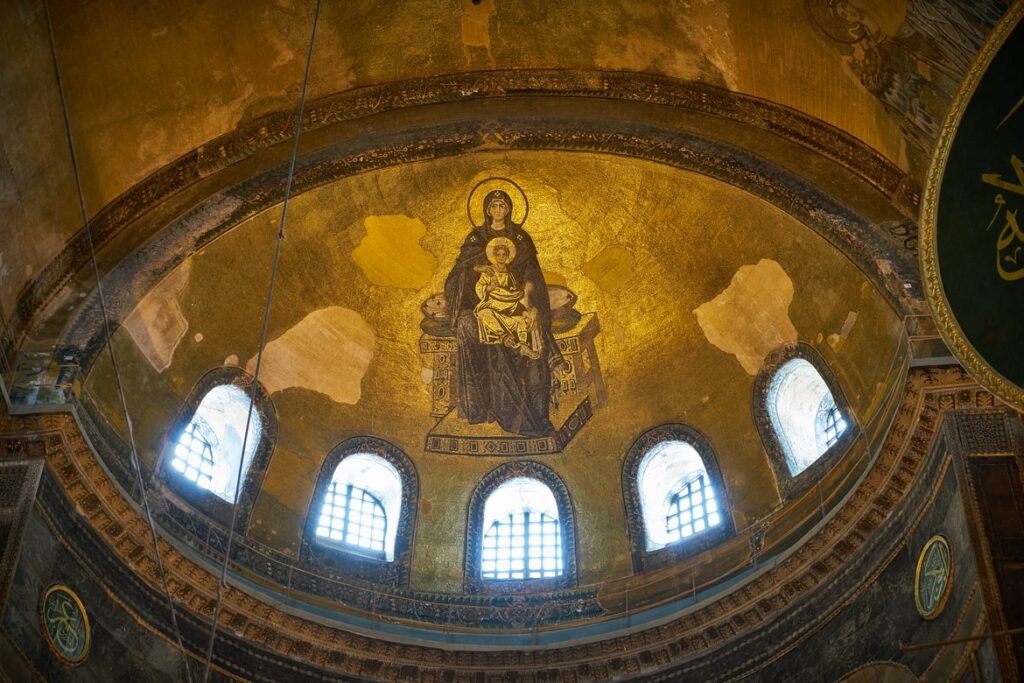Turkey may not be mentioned by name in the Bible, but this region was the setting for many important biblical events and people Modern-day Turkey encompasses much of the ancient kingdoms and empires that interacted with Israelites in biblical times Understanding the history of this region provides insight into the context and significance of many scriptural accounts.
A Strategic Crossroads in the Ancient World
Turkey’s location at the intersection of Europe and Asia has made it a strategic crossroads for millennia. The earliest human civilizations sprang up in this area, with the Tigris and Euphrates Rivers originating here Turkey linked major ancient empires and enabled the spread of ideas, technology, religion and language throughout Afro-Eurasia This helps explain why Turkey hosted so many biblical events.
The Homeland of Abraham
The biblical patriarch Abraham originally lived in the city of Ur located in modern Iraq. However, he later lived in Haran, which is in present-day Turkey. After receiving God’s call, Abraham departed Haran to travel to Canaan (Genesis 12:4-5).
Mount Ararat and Noah’s Ark
According to Genesis, Noah’s ark came to rest on the mountains of Ararat after the great flood waters receded. The highest mountain in Turkey has long been associated with the “mountains of Ararat” from this account. At 16,854 feet, Mount Ararat towers over the plains of Turkey and Armenia. The connection to Noah’s ark made it a significant landmark for biblical events.
The Hittites and Assyrians
Two powerful empires mentioned frequently in the Old Testament controlled territory that now falls within Turkey’s borders. The Hittites inhabited central Turkey and sometimes allied with Israel against shared enemies. However, they were also one of the pagan peoples that the Israelites struggled to drive from Canaan during conquest. The Assyrian Empire conquered the northern kingdom of Israel in the 8th century BC. The Assyrians inhabited parts of Turkey, Syria and Iraq. The Kurdish people who still populate Turkey may be descendants of the Assyrians.
Paul’s Missionary Journeys
The apostle Paul was born in Tarsus, a city in southern Turkey. He carried out the bulk of his missionary work in Turkey as well. On his first journey, Paul visited Perga, Antioch, Iconium, Lystra and Derbe in Turkey before returning to Syrian Antioch (Acts 13:14 – 14:28). His second journey involved revisiting the Galatian churches (Acts 16:1-5). On his third journey Paul ministered for about 3 years in Ephesus, which is located in western Turkey (Acts 19). Much of Paul’s work focused on establishing churches in this region.
The Seven Churches of Revelation
When the apostle John penned the book of Revelation, he addressed seven churches located in western Turkey – Ephesus, Smyrna, Pergamon, Thyatira, Sardis, Philadelphia and Laodicea. Themessages delivered to each church involved commendations and condemnations, as well as exhortations to remain faithful. John likely wrote Revelation from Patmos, a Greek island just off the coast of Turkey. These seven churches hosted some of the earliest Christian communities established.
Antioch – The Cradle of Christianity
Antioch in southeastern Turkey gained prominence in the first century as one of the earliest centers of Christianity. Here the disciples of Jesus Christ were first called “Christians” (Acts 11:26). Many Jerusalem believers who fled persecution settled in Antioch. Paul and Barnabas co-pastored the church in Antioch and used it as a home base for their missionary work (Acts 13:1-3). Along with Jerusalem and Rome, Antioch was one of the three most important cities for the early church.
Turkey Under Greco-Roman Rule
For several centuries prior to and during the early spread of Christianity, western and southern Turkey fell under Greek and Roman authority. Greek language and culture strongly influenced this region, which is why New Testament authors wrote predominantly in Greek. All of the churches addressed in Revelation were located in the Roman province of Asia. Both the apostles Peter and Paul ultimately ended up ministering and suffering martyrdom in Rome after building churches planted throughout Turkey.
The Byzantine Christian Era
When the Roman Emperor Constantine converted to Christianity in the 4th century AD, he relocated the capital of the empire to Byzantium. This city on the Bosphorus strait was renamed Constantinople, later becoming Istanbul, Turkey. Under the Eastern Roman Empire, later known as the Byzantine Empire, Christianity flourished and Turkey was a predominantly Christian region for about a thousand years until the late Middle Ages. Many magnificent cathedrals from this era still stand in Turkey today.
The Rise of the Ottoman and Modern Turkey
As the Byzantine Empire declined, the Muslim Ottoman Empire rose to power by conquering Constantinople in 1453. The Ottoman Turks displaced Christianity with Islam as the dominant faith across Turkey and Southeastern Europe. After World War I, the modern secular nation of Turkey emerged in the aftermath of the Ottoman defeat. While Turkey maintains a Muslim majority population, it also hosts stunning archaeological sites that harken back to its diverse religious history, including many locations key to biblical events.

What was Turkey in the Bible and Biblical History
Biblical History in Turkey is more connected than most people think! The first thing coming to mind when we think about Christian historical places usually in Israel. Considered to be the Holy Land because it was where Jesus lived and died, before him it was the land of Abraham, also the promised land conquered by Joshua.
When Jerusalem was conquered by the Babylonians and the temple destroyed in 586 BC, many Jews were dispersed outside of Israel during the Jewish diaspora.
Later Asia Minor/Anatolia (now Turkey) became home to numerous Jewish communities. A Hellenistic kingdom called the Seleucids settled 2000 Jewish families in Phyrigia and Lydia in 240 BC. Paul’s family was probably settled in Tarsus.

A circular letter sent by consul Lucius recorded in 1 Maccabees 15:16-24, mentions numerous communities in Asla Minör ( How Turkey is mentioned in the Bible) with Jewish people. Although the archaeological remains of the three synagogues found in Turkey – Sardis, Prime, Andriace– all date after the 4c AD, after synagogues are known from the literary evidence.
Another book of the bible mentions Turkey with the name of Adramyttium, the book is: Acts 27:2
“We boarded a ship from Adramyttium about to sail for ports along the coast of the province of Asia, and we put out to sea. Aristarchus, a Macedonian from Thessalonica, was with us.”
Within two decades after Jesus, the gospel spread northward to Antioch, a city located in southeastern Turkey. Here the believers were first called Christians. For the rest of the first century, the land of Turkey became the center for the growing Christian movement[/vc_column_text][vc_column_text]
Most Recommended Turkey Tours
The three great apostles – Paul, Peter, John– are all linked with churches in Asia Minor ( currently Turkey). As we look at the Bible, there are a number of references to Anatolian regions and cities in the Old Testament and Apocrypha, and two-thirds of the twenty-seven books in the New Testament were either written to or from Asia Minor.
Because of this area’s strategic geographical role in the early church history, it is not an exaggeration to call Turkey ‘the Holy Land of Asian Minor’s as Frank Clark did in the title of his book on the Seven Churches. You can also check Private Biblical Seven Churches of Turkey Tour in 5 Days
A good example of how Turkey is a great place to understand well Christianity in the early stages is one of Istanbul greatest historical marks Hagia Sophia, was initially a church, and during the Ottoman Empire the Iconic Hagia Sophia Turns Into a Mosque, currently, Hagia Sophia is turned to a mosque after decades of being a museum, the decision was made last year by the president and with the support of the Muslim community.

Another important center for early Christianity in Ephesus one of the Most Important Archaeological Sites in Turkey In apostolic times, Ephesus was one of the cities of the Roman Empire where Christianity was most widespread Paul of Tarsus and John the Evangelist preached in the city.
Now that you know how Turkey was called in the bible, you will be happy to know that although Turkey is a predominant Muslim nowadays, no matter your religion you will very much welcome and will be able to check out the sightseen related in the bible.
